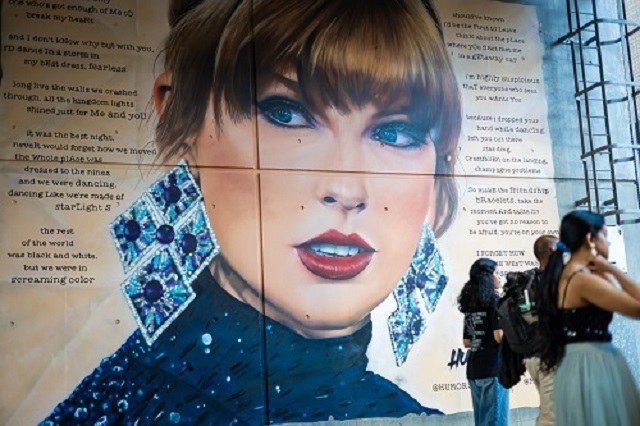Philology in the Era of Taylor Swift
The lyrics of pop music are at the core of a University of Bologna’s research projects involving young high school students
Is it possible to teach philology in high school? How can we make students passionate about studying authorial variants? The answer may lie in Taylor Swift, a legend and American pop idol for teenagers. Taylor Swift’s songs were the focus of an educational experiment conducted by the University of Bologna as part of the PCTO - Percorso per le Competenze Trasversali e l’Orientamento (‘Path for Transversal Skills and Orientation’). The project, entitled ‘Il testo e le fonti in rete, Corso breve di Textual Literacy’ (‘Texts and sources online, a short course on Textual Literacy’), was promoted with the aim of introducing philology to high school students, teaching them the importance of the author’s intent.
The idea of studying the different versions of Swift’s lyrics was born during Professor Paola Italia‘s classes of Italian Literature Philology, held at the Department of Classical Philology and Italian Studies of the University of Bologna. The project was led by Cecilia Salerno, a second year student of the second cycle degree programme in Italian Studies, European Literary Cultures, Linguistics.
‘We started by introducing students to philology – i.e. establishing the last intent of the author – then we analysed some of Taylor’s songs’ – Cecilia explained.
The American songwriter tried to buy back the rights to her first albums after the label that originally released them was sold. But she didn’t succeed, so Taylor decided to record them again herself, giving life to the Taylor’s Versions. This event prompted the analysis of the evolution of language in her songs, which she herself republished comparing the two handwritten versions – the one ‘guided’ by labels, and the ‘liberated’ one, produced after regaining the rights. The students themselves compared the versions and tried to identify the patterns of a ‘style’.
‘In the indie albums her language is more refined, she pays more attention to the lyrics. Swift strives for precision and clarity’ - Cecilia added.
The textual analysis was carried out together with students from two high schools: the Liceo Scientifico Nicolò Copernico and the Istituto Superiore A. Paradisi, located in Bologna and Vignola (Modena) respectively. Valut Tracks – songs originally composed for the albums, but then left unpublished due to decisions by the record industry executives – were studied as well. Some of these are recovered in the Taylor’s Versions, and their study allows us to trace in the revised songs of the latest albums the style of the initial, censored versions.
‘Significant changes, – goes on Cecilia – with up to four different versions, were found for the song All Too Well, part of the album “Red”. Additionally, the analysis focused on the four deluxe versions of “Lover”, possibly the most romantic among Swift’s albums, each featuring a different bonus item. Besides a poster, a blank newspaper and two recordings, old pages of her diary and a book with the lyrics of her songs can be found as well. Many of these are handwritten’.
‘The study of authorial variants and the reflection on autographs were part of the PCTO dedicated to Textual Literacy’, said Professor Paola Italia. ‘Its aim is to develop skills on the reliability of texts online, their variability, and the role of the philologist, who is the ‘guardian’ of the author’s intent and a seeker of truth about and within texts. Cecilia Salerno’s choice to focus on Taylor Swift’s lyrics turned out to be particularly effective in engaging students. Thanks to a case study extremely relevant for them, they understood the dynamics between author, editor (or in this case record producer) and reader, and how texts need to be defended from manipulations and censorship’.
‘Next year – concludes Professor Italia – we will once again promote Textual Literacy courses and involve students from the Italian Philology courses of the Master’s in Modern Philology, who will take on the role of tutors for high school students of institutions that have already expressed their interest in PCTO’.

